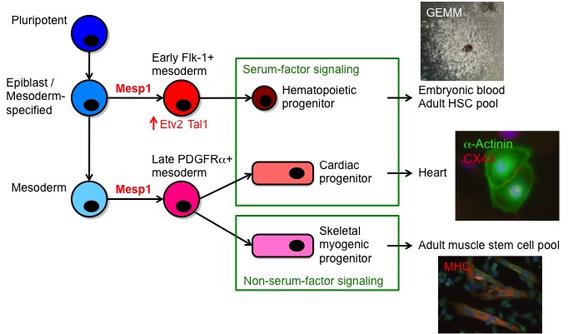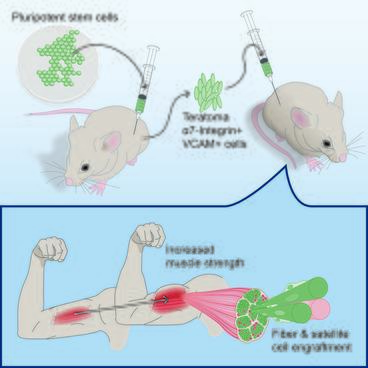We are a new research team interested in advancing stem cell technologies to study heart and muscle disorders. Our goal is to decipher the molecular underpinnings of how the cardiac and skeletal myogenic lineages develop and to establish novel models to study congenital heart diseases and muscular dystrophies.
Heart Project
To understand the role of the transcription factor Mesp1 in cardiac and skeletal myogenic development.
Mesp1 was once thought as a master regulator of cardiovascular specification. But our previous work revealed a much broader role, in which Mesp1 promotes hematopoietic, cardiac and skeletal myogenic differentiation in a context dependent manner. We are currently studying how Mesp1 regulates cardiac and skeletal myogenic development and its role in congenital heart defects and muscular dystrophies.
Mesp1 patterns mesoderm into various lineages at different stages of
differentiation (Chan et al., Cell Stem Cell, 2013).
Mesp1 promotes a cardiac/skeletal myogenic bipotent population that mimics the
cardiopharyngeal mesoderm during embryo development (Chan et al., Stem Cell
Report, 2016).
Skeletal Muscle Project
To develop novel strategies for producing adult stem cells from pluripotent stem cells.
Adult stem cells are endogenous, multipotent stem cells with unparalleled potency in regenerating tissues they normally reside. Muscle stem cells are such example. We have recently developed a method to produce muscle stem cells from pluripotent stem cells with exceptional regenerative capacity. We are currently expanding our method to model and to treat muscular dystrophies.

